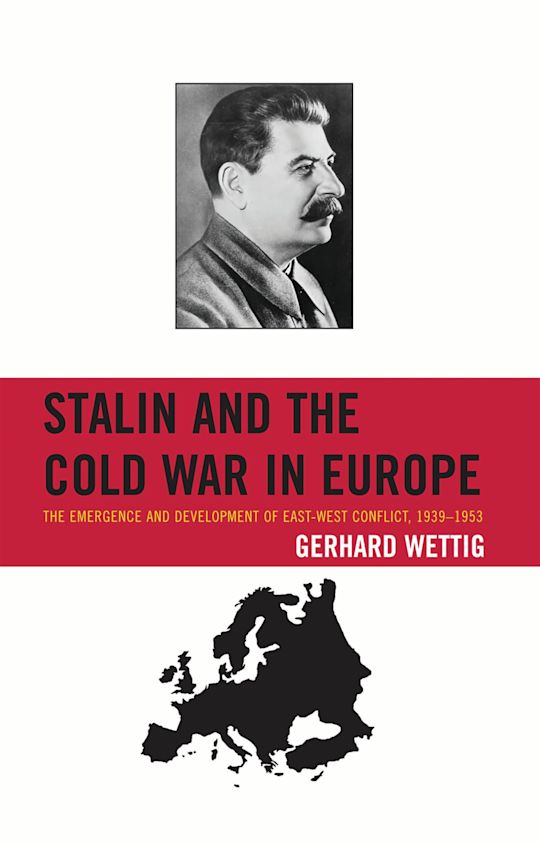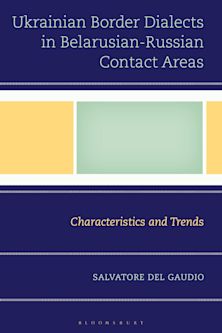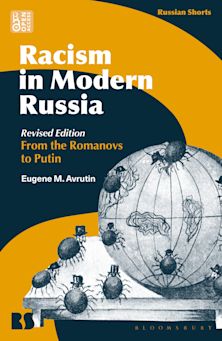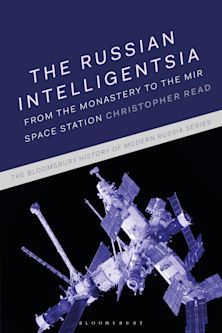- Home
- ACADEMIC
- History
- Russian History
- Stalin and the Cold War in Europe
Stalin and the Cold War in Europe
The Emergence and Development of East-West Conflict, 1939-1953
Stalin and the Cold War in Europe
The Emergence and Development of East-West Conflict, 1939-1953
This product is usually dispatched within 1 week
- Delivery and returns info
-
Free US delivery on orders $35 or over
You must sign in to add this item to your wishlist. Please sign in or create an account
Description
The Cold War was a unique international conflict partly because Josef Stalin sought socialist transformation of other countries rather than simply the traditional objectives. This intriguing book, based on recently accessible Soviet primary sources, is the first to explain the emergence of the Cold War and its development in Stalin's lifetime from the perspective of Soviet policy-making. The book pays particular attention to the often-neglected "societal" dimension of Soviet foreign policy as a crucial element of the genesis and development of the Cold War. It is also the first to put German postwar development into the context of Soviet Cold War policy. Stalin vainly tried to mobilize the Germans with slogans of national unity and then to discredit the West among the Germans by forcing the surrender of Berlin. Further attempts to prevail deadlocked him into a confrontation with the newly united Western powers. Comparing Stalin's internal statements with Soviet actions, Gerhard Wettig draws original conclusions about Stalin's meta-plans for the regions of Germany and Eastern Europe. This fascinating look at Soviet politics during the Cold War provides readers with new insights into Stalin's willingness to initiate crisis with the West while still avoiding military conflict.
Table of Contents
Chapter 2: Prelude to Postwar East-West Conflict
Chapter 3: Failure of Interallied Cooperation, 1945–1947
Chapter 4: Outbreak and Culmination of the Cold War, 1947–1949
Chapter 5: Struggle for Peace, 1949–1953
Chapter 6: Stalin's Role in Cold War Interaction
Product details
| Published | Nov 06 2007 |
|---|---|
| Format | Hardback |
| Edition | 1st |
| Extent | 294 |
| ISBN | 9780742555426 |
| Imprint | Rowman & Littlefield Publishers |
| Dimensions | 9 x 6 inches |
| Series | The Harvard Cold War Studies Book Series |
| Publisher | Bloomsbury Publishing |
About the contributors
Reviews
-
Wettig has written an important book. . . . Wettig has utilized documents from Russian as well as East German and East European archives. Highly recommended.
Choice Reviews
-
A distinguished German historian, Gerhard Wettig has written a solid and important study on the Soviet road to the Cold War. . . . The book firmly stands on its evidence and is a nice addition to the field of Cold War studies.
American Historical Review
-
Wettig has produced a lucid book that fulfils many roles at once: a comprehensive survey of geopolitical developments seen from the Soviet perspective; an overview of existing interpretations revisited on the basis of more recent archival findings; and, finally, an explicit attempt to locate 'the German problem' in the post-war period within the broader context of Soviet ambitions and the rise of the Soviet bloc. . . . Wettig's account valuably includes so-called 'fringe' examples (Finland, Yugoslavia, Albania) that have all too often been ignored, but that, as he aptly notes, reveal a great deal about early Cold War dynamics. They add immensely to this deeply engaging book. These examples are not merely instructive in analysing Soviet tactics and policy goals comparatively, they also offer telling insights into the role of small states, and the contradictions, and unexpected outcomes that emerge from their study.
Europe-Asia Studies
-
A major contribution to the burgeoning literature on the inside story of the Cold War from the 'other side.' Stalin and the Cold War in Europe is a highly readable blend of historical narrative and insights from newly available archival evidence.
Robert L. Hutchings, Princeton University



































